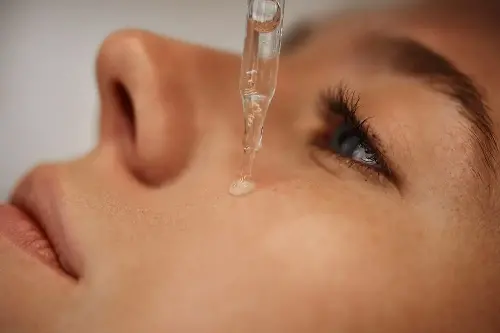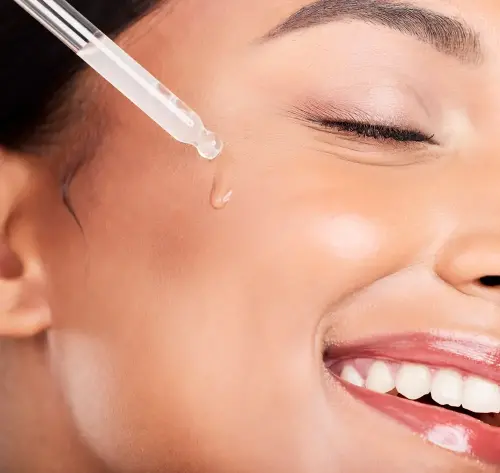
The summer is around the corner and the scorching heat, combined with dry humid air takes a serious toll on your skin. While sunscreen is the most essential non-negotiable, let's not forget about your skincare routine as a whole. It's important to adjust your skincare with the right skincare products to keep up with the seasonal changes. Skin becomes vulnerable to these changes.
Retinol and hyaluronic acids are one of the powerhouse ingredients that dominate the skincare routine. Let's try to understand which one is suitable for you, based on your skin type and needs.
In an interview with HT Lifestyle, Dr Khushboo Jha, MD, Chief Dermatologist and Founder of One Skin Clinic, in Faridabad, shared her expert insights on whether retinol or hyaluronic acid is the better choice for summer skincare. For your better evaluation, she provided the pros and cons for each, along with the base utilities.
Here's the complete breakdown of retinol and hyaluronic acid, as shared by Dr Jha:
Retinol: a potent yet risky active for summers

- Uses- Retinol, a derivative of Vitamin A, is known for its ability to boost cell turnover, reduce wrinkles, and improve skin texture. It is a holy grail for anti-ageing and acne treatment. However, retinol also increases skin sensitivity to the sun, making it riskier to use during summer.
- Advantages- Retinol is a powerful booster of collagen, the skin’s major structural protein and in this way, it assists in reducing the appearance of fine lines and wrinkles. It also is quite helpful to even out the skin tone and improve its texture.
- Disadvantages- Retinol is a powerful active that makes the skin photosensitive and increases the incidence of sunburns. Also, retinol can lead to skin irritation and peeling, especially when the weather's hot and humid. If using retinol, you need to follow a rigorous nighttime skincare routine with daily application of sunscreen.
- How to use retinol safely in summers- Retinol should only be applied at night and daytime skincare regime should be inclusive of sunscreen which is broad-spectrum with SPF of 50. Start with lower concentrations of retinol to avoid skin irritation. Also moisturise the skin well to prevent dryness and peeling.
ALSO READ: Complete guide to retinoids: When to start and introduce it in your skincare routine, based on skin type
Hyaluronic Acid - best for skin’s hydration

- Uses- Unlike retinol, hyaluronic acid (HA) is a hydration-boosting ingredient that keeps skin plump and fresh. It attracts and retains moisture, making it perfect for summer when heat and air conditioning can dehydrate the skin.
- Advantages- Hyaluronic acid hydrates the skin deeply and gives it a plump appearance. Compared to retinol, hyaluronic acid is non-irritating and is best suited for all skin types. It helps to soothe sun-exposed or sensitive skin
- Disadvantages- It is not as effective as retinol for dealing with wrinkles and needs to be sealed with a moisturiser to prevent water loss
- How to use hyaluronic acid safely in summers- Apply it on damp skin for maximum hydration and layer it under sunscreen and moisturiser. For best use, use it in both morning and nighttime routines.
Which one should you choose for summer?
Now that you know about both retinol and hyaluronic acid from Dr Jha's explanation, it's time to determine which one suits your skin best this summer. Your choice should depend on your skin type, concerns, and how your skin reacts to seasonal changes.
Dr Jha added, “If you want hydration and skin barrier protection, go for hyaluronic acid - it’s gentle, effective, and perfect for hot weather. If your focus is on anti-ageing or acne control, you can still use retinol but with extra precautions, like limiting sun exposure and using a strong SPF. Best option? Use both! Apply hyaluronic acid in the morning and retinol at night to get the best of both worlds while keeping your summer skin safe and healthy.”
Note to readers: This article is for informational purposes only and not a substitute for professional medical advice. Always seek the advice of your doctor with any questions about a medical condition.
ALSO READ: Dermatologist shares 4 non-negotiable skincare and haircare tips to follow in 2025 for hydrated lips and more